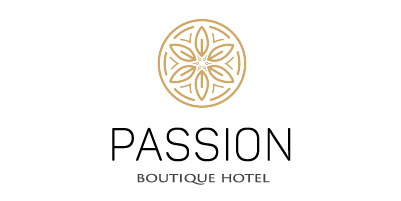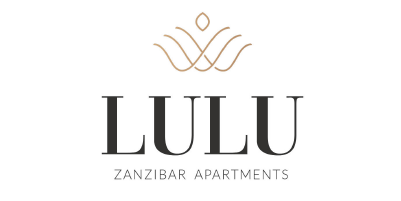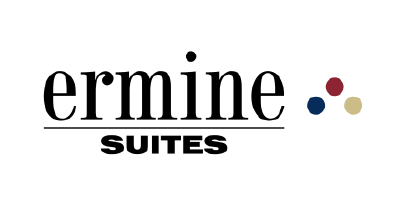Stone Town is an interesting mix of East African, Arab, Indian, Persian and European conquerors, traders and seafarers.
Frequently Asked Questions
Here is some useful information about your stay on the island.
Both Zanzibar and Tanzania are on GMT + 3.
Zanzibar’s currency is the Tanzanian shilling (TSh). Foreign currency such as dollars ($) and euros (€) are also usually accepted in most establishments. However, all USD money must be issued from 2006 onwards since older notes either won’t be accepted or will be exchanged with a very unfavourable exchange rate.
Zanzibar uses 220V, so you might need adapters if you are using a different voltage. We provide adapters and international sockets, but you can always bring your own, just in case.
Swahili is the official language of Zanzibar but English is widely spoken throughout the island. Arabic is spoken too.
Zanzibar as well as its district Jambiani are both safe to visit. People here are very hospitable, welcoming and always eager to help. They will greet you with a smile on their faces exclaiming Jambo! (which is Hello! in Swahili). After the sunset local villages get dark as there are no street lights, thus it is recommended to carry a torch. Just like anywhere else in the world, minor thefts may happen, so we recommend keeping your valuables in safes.
Zanzibar is one of the safest African destinations, even for solo female travellers. In fact, being one of the most stable African countries, Tanzania is ranked as the most peaceful country in East Africa.
Jambiani is a traditional Zanzibar village where people’s life is subsidised by nature. Locals get up when the sun rises and go to bed at dusk. When the tide is low women go to collect algae on their farms in the ocean. They pick the softened coconut shells from the ocean to make strings. On the other hand, at high tide men go out on boats in search for seafood and fish.
We do not encourage to give away sweets as children might have problems with their teeth and, unfortunately, there are no public dentists available. If you brought gifts for children, it is better to take them to the local school or give them to an organisation that helps the poorest. Alas, giving presents to children in the village teaches them bad habits like begging.
The Masaai are extraordinary people with an even more extraordinary culture. They have lived in areas of Tanzania and Kenya for hundreds of years and graze their precious cattle in both countries even today. The Masaai take lion hunting very seriously. Lions are never hunted for fun. The Masaai are also used to guard and protect island businesses as the local people highly respect them. Masaai clothing varies by sex, age and place. Red is a favoured colour, believed to symbolise power, and is often combined with other bright materials.
The Zanzibar Archipelago is a tropical island destination. It is sunny and warm – simply perfect for beach holidays and outdoor activities. The climate is hot all year round, with two rainy seasons: one more intense, known as the “long rains” season, from March to May, with the peak in April, and the other less intense, known as the “short rains” season, between November and December.
By ferry or by plane. The average price for a round-trip is more or less 1000€. The cheapest month to fly to Zanzibar is usually around March. The most popular airlines are: Air France, Austrian Airlines, Ethiopian Airlines, Etihad Airways, KLM, Kenya Airways, Lufthansa, Oman Air, Qatar Airways, Swiss International Air Lines, or Enter Air.
Yes, oh yes! Zanzibar is one of the world’s best honeymoon destinations. The authentic charm and picture-perfect beaches of Zanzibar make it a very popular romantic getaway.
Whether or not a visa is required depends on your nationality. Visarequirements and costs are subject to change so it’s advisable to check theTanzanian Immigration website for the latest visa information:https://eservices.immigration.go.tz/visa. Your Visa application will usually beprocessed up to 7 business days. The price for a single entry (tourist visa) isnormally $50 for most nationalities and $100 for US citizens. When travelingto Zanzibar ensure that your passport is valid for at least six months fromthe date of departure.
A Yellow Fever vaccination certificate is only required for travelers comingfrom a country with a risk of Yellow Fever transmission or those who are intransit for more than 12 hours within a country at risk of such a disease.
Tanzania is one of the most culturally diverse countries in the world. Fromthe tall graceful Masaai warriors, the ancient ways of the Hadza bushmen,the resourceful agricultural practices of the Wameru, the artistic talents ofthe Makonde to the Chaga farmers and traders.
The Zanzibari people are descendants of Africa, Arabia, India, Persia, and theComoros Islands. The main religion in Zanzibar is Islam. Over 90% of thepopulation is Muslim with a small minority of Christians, Hindus, Jains, andSikhs.
Most Western countries have a rather liberal attitude when it comes toclothing while the Zanzibar dress code, as required by Islam, is moreconservative for both, men and women. Whilst it is generally fine to wearwhat you want on the beach or at your hotel pool and around hotel resorts,you should definitely cover your arms and knees when visiting Stone Townand local villages.
Tipping in Zanzibar is voluntary and at your discretion. Unlike many Westerncountries, there is no standard tip policy in bars or restaurants, but anyamount is always very appreciated.
Yes, there are local gyms scattered around which you can freely use. We recommend Active Fitness Gym ($2 entrance fee pp.) and Jumbo Gym ($10 for a day pass).
You will need a driving permit which costs $13 and is valid for 3 months. One-day scooter rental costs around $25 whereas one-day car rental costs around $40.
Yes, there are plenty. You can buy anything from groceries to local crafts, handmade products to souvenirs. We recommend Jambiani Supermarket nearby.
Check luxury villas and apartments
2-BED
VILLA
- 1-5 people
- 90 m2
Villas designed for perfect and relaxing holidays. The ideal choice for those searching for a tropical home away from home.
- 1-7 people
- 160 m2
Luxurious, tastefully decorated, and spacious villas providing stunning Ocean Views. The perfect base for a memorable vacation.
Before
You
Come.
Here is some useful information about your stay on the island.
For most tourists, a visa costs $50. For US citizens, a visa costs $100.
Continental breakfast is served in the form of a buffet at the La Shira restaurant. You can enjoy your morning coffee and the buffet from 7.30 AM to 10:30 AM.
The restaurant remains open for lunch and dinner from 12:00 until 21:30 daily, and boasts a wide selection of local and international dishes, as well as an additional daily chef’s recommendation menu.The local currency is the Tanzanian Shilling (TSH) which is accepted in Zanzibar, Pemba, and the Tanzanian mainland.
We recommend exchanging your home currency for US dollars before departure to avoid bank charges. However, many places accept USD and Euro. Please note that most places in Zanzibar do not accept US dollar notes printed before 2006.
At Jambiani Villas we do not charge any fees on credit card payments. Keep in mind, however, that a 5% fee is practiced in many places in Zanzibar
Exchanging money
You can exchange money in Jambiani: Bahdadi Store (around 200m from Jambiani Villas) or in Paje: Wakala, Kijiji Supermarket
Medical provisions on the Island are not comparable to Western countries, but there are doctors and hospitals all over the island. You can avoid unwelcome incidents by following these simple rules:
- Do not drink water from the tap.
- Ask if ice cubes are made from bottled water.
- Wash your fruits and vegetables with bottled water before eating.
In the event of an emergency, the nearest hospital is located in Paje (5km from Jambiani Villas)
Medexpress Hospital in Paje
24/7 Emergency: +255 776 766 666
Whatsapp: +255 776 399 999
Low and high tides are well noticeable on the east coast of Zanzibar. At low tide, the ocean retreats far from the shoreline. At that time the ocean’s bed is exposed for up to 1.5 km from the shoreline. During high tide, depending on the incoming amount of water, you may not be able to walk on the beach for a few hours, in addition, large waves easily splash right against the fencing of resort premises. During this time, we provide taxis to the La Shira restaurant at no cost.
Tide information is displayed on our daily chef’s recommendation board found at La Shira Restaurant and in the Reception areas.
Plastic Bag Ban with effect from 1st June 2019: – tourists, can face very heavy fines for using Plastic bags. Using, manufacture or importation of plastic bags, including garbage bags and shopping bags, is illegal. Convicted offenders, including tourists, can face very heavy fines, imprisonment for up to two years, or both.
Visitors are advised to avoid packing any plastic bags in their suitcases or in carry-on hand luggage before flying to Tanzania. Items purchased at the airport before boarding the aircraft should be removed from plastic bags. Please check hand luggage before disembarking at entry points and any plastic bags should be left in the plane. Similarly, the transparent “zip-lock” plastic bags that some airlines require passengers to use for keeping liquids, cosmetics, toiletries, etc. separately in hand luggage are also not permitted to be brought and should be removed and left on the plane before disembarking.
Full official information: here
Airport / Ferry transfers
We offer our guests transfers to and from the airport or ferry (55 km) with the new Toyota Alphard. The cost is $45 per car (up to 6 people) one way or $90 round trip.
Public transportation
There is no government-owned public transportation in Zanzibar. Privately owned, so-called “DalaDala,” functions as a collective taxi that serves as the only kind of public transport. It is definitely the cheapest and most adventurous means to get around the Island.
The term DalaDala evolved from the Kiswahili word “Dala” — a colloquial reference to the US dollar that approximated the cost in shillings during the 1970s and 80s.
Renting a car or motorbike
If you plan to rent a car or a motorbike, remember to always have your driving license and Zanzibar Driving Permit, which you can buy at the car rental company for $10 -15$. Police checks occur on a daily basis, where documents such as car insurance and the issue date of servicing are checked. Please note that in Zanzibar left-hand side traffic applies. Speed limits of 40km/h in Stone Town and villages should be observed, and 50km/h on country roads.
Taxi
It is common to use a taxi as a means of transportation on the island. In Zanzibar, you pay for the route rather than the kilometer, and we set the price prior to your departure. Be aware that for shorter distances you need to order a taxi at least 20 mins before your desired time of departure, and around an hour for longer ones. Please order your Taxi at Reception.
Taxis which we use for our guests are of the highest quality. Cars and drivers are insured. In the event of any mishap, a replacement car is always available near Paje and Stone Town.



